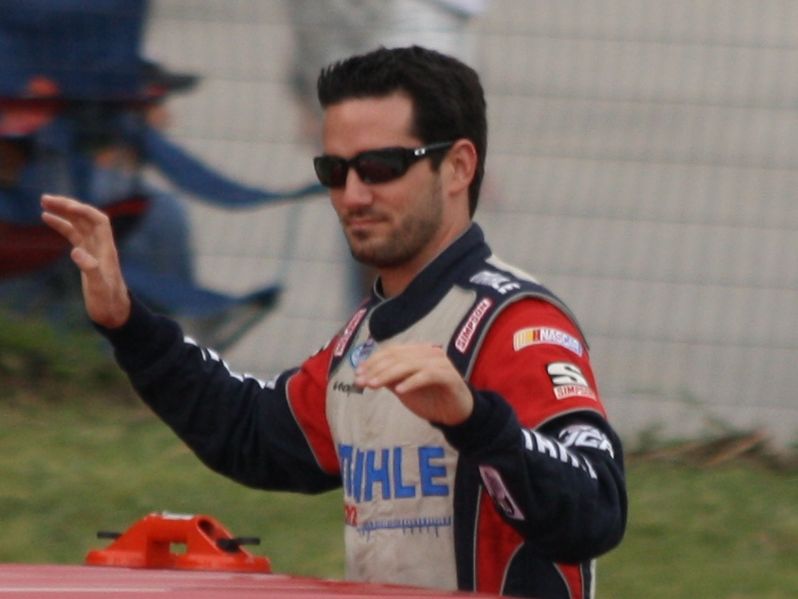Dear NASCAR: Information Wants To Be Free
Last Saturday, NASCAR driver Jeremy Clements made a racist remark during an interview with MTV (his comment was not recorded). NASCAR handled the incident swiftly, suspending him indefinitely and reportedly insisting that he attend sensitivity training as a condition of his eventual return.
Clements and NASCAR may have been able to get away without the public ever learning about this story. The only two people who heard the comment were an MTV reporter (who said he had no intent to make the comment public) and a NASCAR publicist.
Despite that—and to its great credit—NASCAR acted anyway, releasing a statement saying that Clements’s comment was “intolerable.” But it’s what NASCAR didn’t put in its statement that caught my eye.
NASCAR released the following statement on Wednesday:
DAYTONA BEACH, Fla. — Jeremy Clements, a driver in the NASCAR Nationwide Series, has been indefinitely suspended from NASCAR for violating the sanctioning body’s Code of Conduct.
On Feb. 23 at Daytona International Speedway, Clements was found to have violated Sections 7-5 (NASCAR’s Code of Conduct) and 12-1 (actions detrimental to stock car racing).
“During the course of an interview, Jeremy Clements made an intolerable and insensitive remark,” said Steve O’Donnell, NASCAR senior vice president of racing operations. “NASCAR has a Code of Conduct that’s explicitly spelled out in the 2013 NASCAR Rule Book. We fully expect our entire industry to adhere to that Code.”
Clements simultaneously released his own statement:
“I apologize and regret what I said to the NASCAR writer and to NASCAR, my sponsors, my fans, and my team. NASCAR has a Code of Conduct that everyone must follow and I unintentionally violated that code. I will not get into specifics of what I said but my comment to the writer was in no way meant to be disrespectful or insensitive to anyone or to be detrimental to NASCAR or the NASCAR Nationwide Series. I will do what I need to do in order to atone for my error in judgment.”
Both of those statements left a gaping hole: What did he say?!?
Journalists, who weren’t satisfied by the vague statements, started digging. And sure enough, they started finding answers within 48 hours. This morning, Marty Beckerman, the producer who was present during those comments, said on MTV:
“I was there to do a fish-out-of-water story about going to NASCAR and having a wild, crazy weekend. And, we were doing interviews with many of the drivers, and I was on the way to another interview — we were looking for [driver] Johanna Long’s trailer — and the NASCAR publicist called Mr. Clements over and asked him for help finding her. He walked us toward where she was, and on the way over, I explained to him that Guy Code is rules for guys, how you treat your friends, how you treat your ladies, things like that. I was there to do a humor piece, so I asked him what would be Guy Code for race car drivers, and he blurted out [a phrase that used the n-word].”
So here’s the question: Would NASCAR and Clements have been better off by releasing those details themselves? Wouldn’t doing so have given them more control over how the comments were reported?
And it’s not just this incident. After a horrific crash last week, NASCAR immediately claimed copyright over all fan photos and videos of the wreck. That stance led to the predictable “Streisand Effect,” which occurs when a person’s effort to remove content has the opposite effect as defiant bloggers fight back by making the content more widely available.
In both cases, it appears that NASCAR is still operating in a world in which they think they can control all information. But that’s an increasingly difficult task in the age of social media.
When a person—or an organization—is viewed as hiding information, the resulting coverage is typically harsher. Their obfuscation only served to prolong the news cycle.
What do you think? Should NASCAR have released more details in order to help control the story?
Jeremy Clements photo credit: Royalbroil, Wikimedia Commons





I think is an important PR 101 lesson. Silence leave space to expeculations. If you don’t give your version of the story, someone will. Great analysis, thou